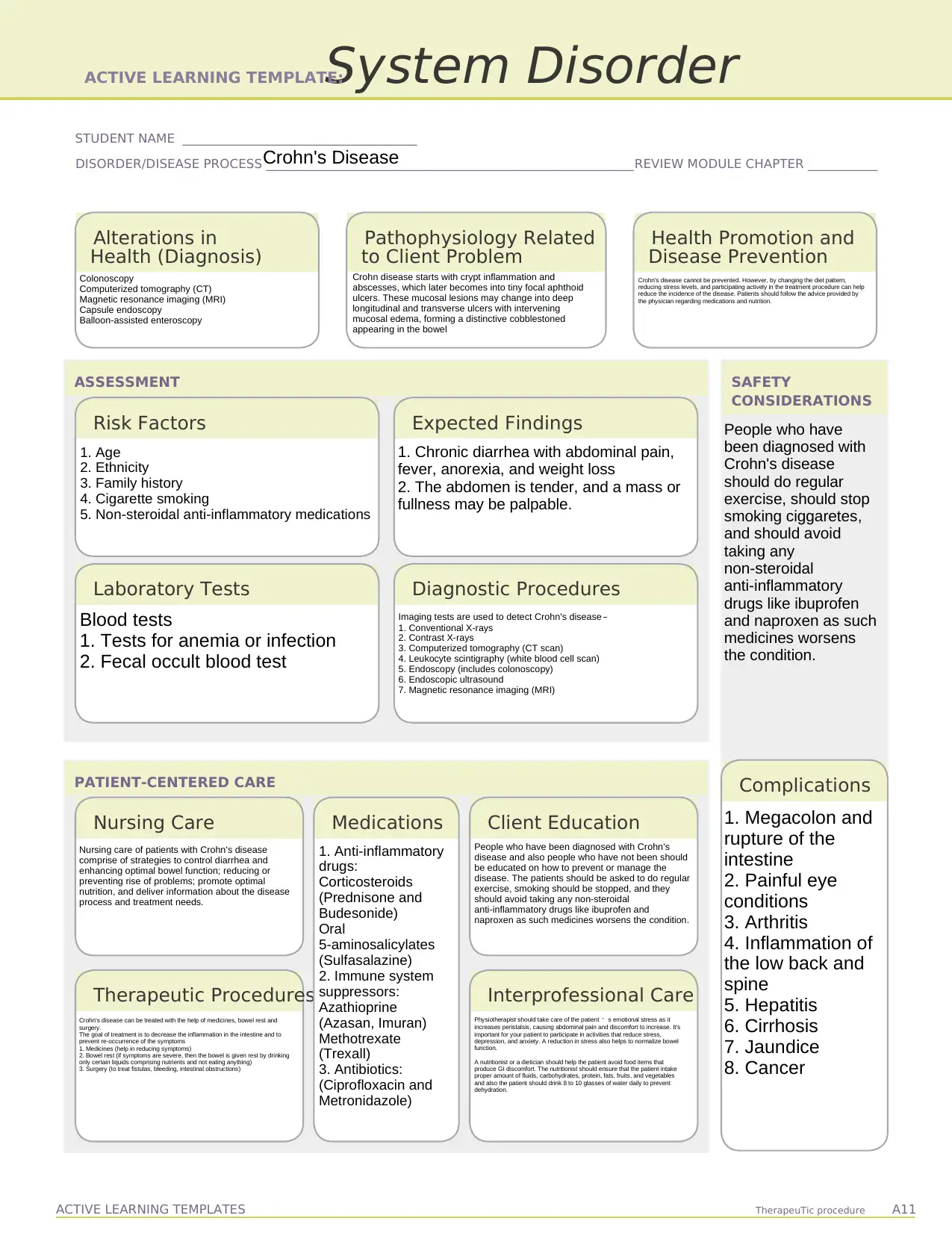Active Learning Template and Analysis: Crohn's Disease and Concept
VerifiedAdded on 2022/11/04
|1
|705
|198
Homework Assignment
AI Summary
This assignment presents an active learning template focused on Crohn's disease, covering various aspects of the disease process. The template includes sections on pathophysiology, risk factors, expected findings, laboratory tests, and diagnostic procedures. It also addresses patient-centered care, including nursing interventions and therapeutic procedures. Furthermore, the assignment highlights potential complications, medications, and client education strategies. Finally, it emphasizes the importance of interprofessional care, involving physiotherapists and nutritionists, to manage the disease effectively. The analysis also explores the relationship between the selected concept and the systems disorder, offering a comprehensive understanding of Crohn's disease management.




![[object Object]](/_next/static/media/star-bottom.7253800d.svg)